Much has been made recently about the money, jobs and internships Commonwealth Edison provided in its attempt to bribe House Speaker Michael Madigan. And much should be made.
But there’s another implication here that deserves a lot more attention. Two key former ComEd executives did plenty to make sure Madigan kept his grip on power through map drawing.
Sure, the speaker needs millions to fund campaigns to help ensure he keeps his majority. But the building block to the speaker’s power is the map. And former ComEd CEO Frank Clark and former top lobbyist John Hooker did all they could to make sure Madigan kept control of drawing the Illinois House district map back in 2016.
It’s tough to get Illinoisans to fully appreciate how critical it is who draws the maps. It cannot be overstated just how much a majority leader’s power comes from being able to draw the districts. Think about this: Madigan has been in power for all but two of the past 40 years. What was different for those two? Republicans had the power over the maps. Those maps lasted for 10 years, and he lost power for only two, but still.
Maps matter very much to Madigan.
In 2016, Clark and Hooker filed a lawsuit to block a citizens group, Support Independent Maps, from getting a question before voters asking if they wanted an independent group drawing the state’s district maps instead of politicians. The group had collected more than 570,000 voters’ signatures to secure a ballot spot when Clark and Hooker leapt into action.
They hired attorney Michael Kasper to represent them. Speaking of implications and connections, Kasper long has been the attorney for the speaker and his Democratic Party of Illinois. Back in 2016, Kasper also was a lobbyist for ComEd. Coincidence?
Clark and Hooker did not stop there. They called their effort the People’s Map. I remember the political mailings that landed at my door, falsely warning me that the independent map group was out to erode the political power of people of color. The Chicago Tribune reported that Hooker, who is Black, said the effort to remove mapmaking from politicians “had unintended consequences for black and brown minority districts.” The mailings also outrageously suggested the nonpartisan group was a front for Republicans.
As WBEZ has reported, the independent map group hired Lori Lightfoot, then a partner at law firm Mayer Brown, to represent them. At the time, Lightfoot suggested Clark and Hooker’s claims of minority disenfranchisement were “nonsense” and that Madigan was behind their legal challenge. Madigan’s spokesman denied it.
The case quickly made its way to the Illinois Supreme Court, where Clark and Hooker prevailed, thanks to a 4-3 Democratic court majority that still exists.
One of the Democrats who ruled in favor of Clark and Hooker was now-Chief Justice Anne Burke, who is married to indicted Ald. Ed Burke. At the time of the ruling, WBEZ reported, ComEd was a client of her husband’s law firm. Conflict of interest?
Three months after the ruling, ComEd’s parent company, Exelon, won a major bailout for its nuclear plants from Illinois lawmakers.
In response to the ComEd deferred prosecution agreement, Madigan has denied any wrongdoing and has not been charged, despite being implicated as the recipient of ComEd’s largesse.
It’s important to explore all the implications within the implications. When it comes to political mapping, look at all the dots and see where and how they might connect. The implications aren’t just about money and jobs. All of this underscores why lawmakers must embrace a more independent, transparent process for drawing the maps that form the foundation of our democratic system.
This column was originally published by Crain’s Chicago Business.
